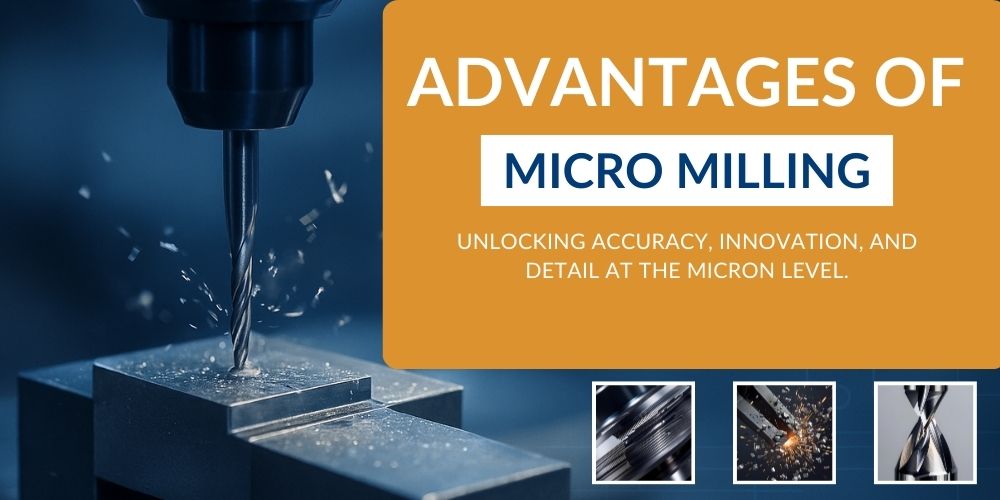
Micro milling has become one of the most advanced and reliable machining techniques in modern manufacturing. Whether you’re working with aerospace components, medical devices, or custom prototypes, this process delivers unmatched accuracy and flexibility. Unlike traditional milling, micro milling uses ultra-small cutters that achieve micron-level detail and surface finishes, making it an essential method for industries where precision isn’t just important—it’s non-negotiable.
In this blog, we’ll explore the top advantages of micro milling and why it’s considered a game-changer in today’s manufacturing world.
1. Versatility in Materials and Geometry
One of the biggest strengths of micro milling is its ability to handle a wide variety of materials. From aluminum and steel to ceramics, alloys, and even high-performance plastics, micro milling can work with them all. Specialized cutters made from carbide or diamond make it possible to achieve real 3D features like engravings, slots, and pockets.
This flexibility allows manufacturers to create components directly from solid material instead of relying on sheets or molds. For example, in workshop milling applications, machinists often need to switch between different materials without sacrificing accuracy. Micro milling makes that transition seamless, saving both time and effort.
2. Ultra-High Precision and Surface Finish
When it comes to producing delicate and detailed parts, precision is everything. Micro milling machines are designed to deliver micron-level tolerances, which means they can create parts that fit together with incredible accuracy. This is especially critical for industries like medical devices, microfluidic systems, and optics, where even the tiniest error can compromise performance.
Another benefit is the exceptionally smooth surface finish. Because of the rigid setups and fine cutters, micro milling ensures minimal tool marks, making it an excellent choice for components that require aesthetic appeal as well as technical accuracy. If you’re curious about how this compares to other milling techniques, our guide on climb vs. conventional milling offers a helpful perspective.
3. Ability to Create Complex 3D Features
Micro milling shines when it comes to creating intricate geometries and multi-level designs. Features like undercuts, fine contours, and 3D patterns are difficult to achieve with traditional machining methods, but micro milling handles them with ease.
This makes it particularly useful in fields like aerospace and microelectronics, where miniaturized yet complex components are the norm. Using 3- or 4-axis machines, manufacturers can bring innovative designs to life without needing multiple processes. That efficiency not only saves time but also ensures design integrity, since fewer steps mean less risk of errors creeping in.
4. Cost-Effective for Prototypes and Low Volumes
Unlike processes such as injection molding or lithography, micro milling doesn’t require costly tooling. That makes it a smart choice for producing small batches, prototypes, or customized parts—especially when designs are still evolving and changes are frequent.
For startups or research labs, this advantage is particularly valuable. They can test multiple versions of a part without committing to expensive molds or large-scale production runs. Over time, this flexibility leads to significant cost savings, while still providing high-quality results.
If you’re working on projects that involve both milling and lathe operations, you might find inspiration in our mill-lathe project ideas, where flexibility and customization play a central role.
Wrapping It Up
Micro milling isn’t just another machining process—it’s a powerful tool that combines precision, flexibility, and cost-effectiveness. From handling a wide range of materials to producing complex geometries with flawless surface finishes, the advantages are clear. For industries that demand accuracy and innovation, micro milling has become an indispensable choice.
And if you’re looking for reliable machines to make the most of these benefits, Taig Tools offers a trusted line of milling and lathe solutions designed for both professionals and hobbyists.

